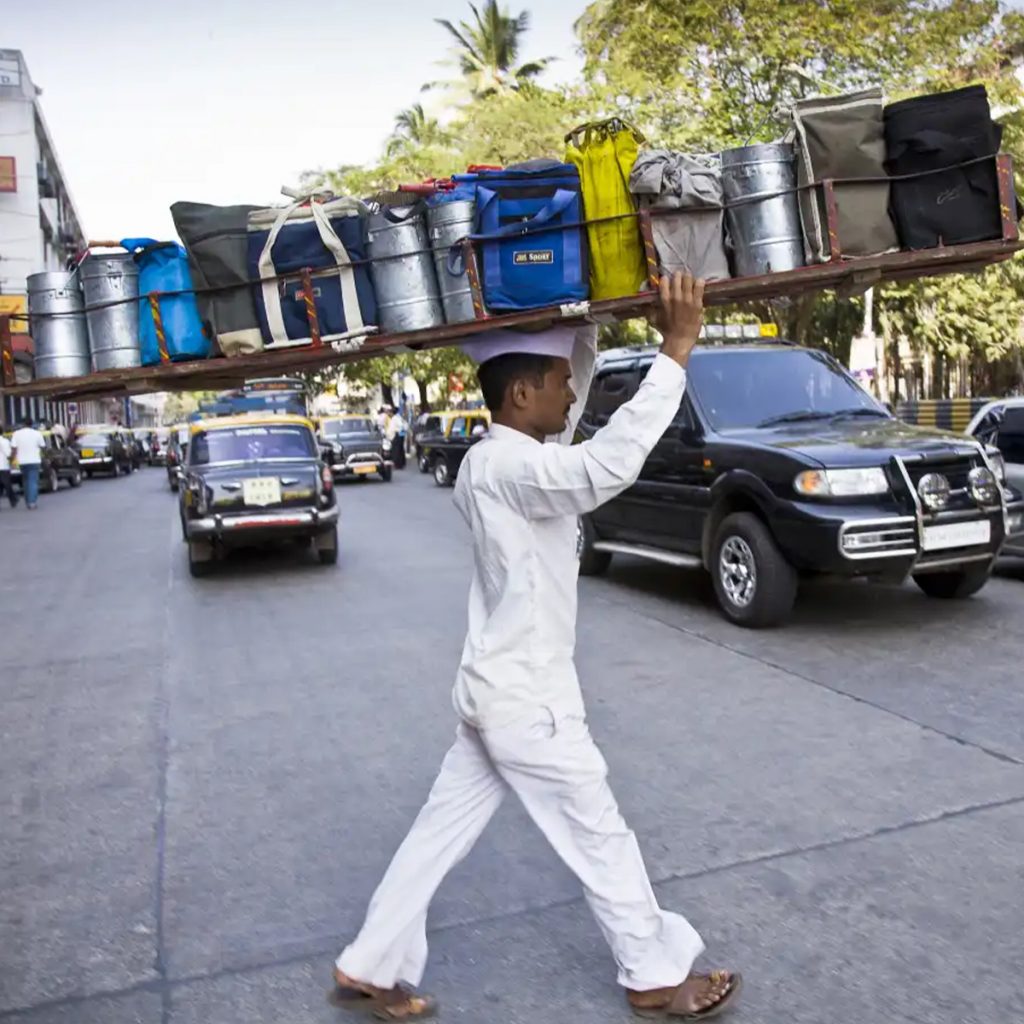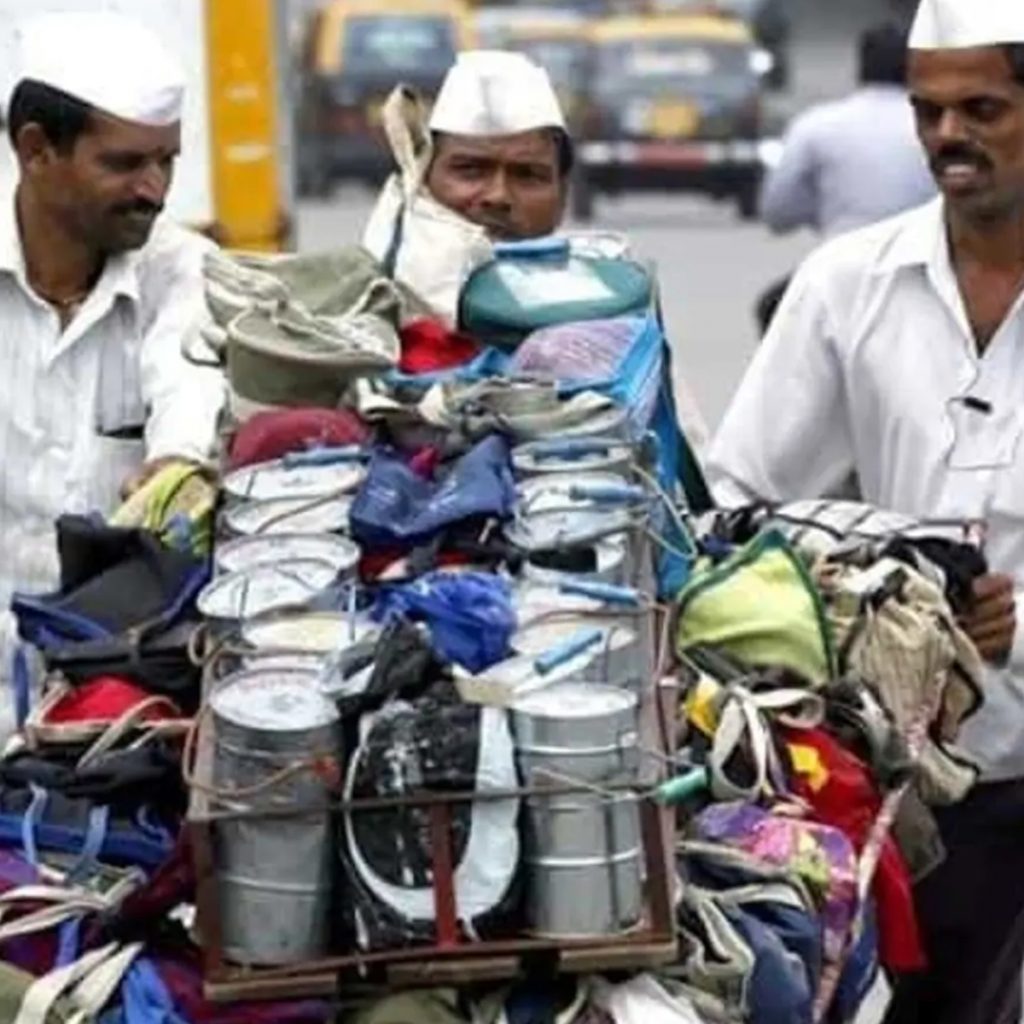The history of Mumbai Dabbawalas dates back to the early 19th century when a Parsi banker initiated the lunchbox delivery service, marking the humble beginnings of what would become an iconic institution in Mumbai. The dabbawalas’ primary mission was to deliver home-cooked meals from residences to office-goers with precision and punctuality. In the 1950s, the system formalized with the establishment of a cooperative, bringing organization and efficiency to the dabbawalas’ operations. Their unique coding system, introduced in the 1890s, became a symbol of their accuracy, using symbols and numbers to ensure each lunchbox reached its destination correctly. This coding system has since become the hallmark of the dabbawalas’ precision.

The dabbawalas gained international recognition for their operational excellence when they achieved a Six Sigma rating in the early 2000s. Even during the challenging times of the Mumbai floods in 2005, the dabbawalas demonstrated unwavering dedication by maintaining their delivery service when the city was at a standstill. Over the years, these lunchbox carriers have not only adapted to the digital age by incorporating some digital tools but have also faced and overcome challenges, such as those posed by the COVID-19 pandemic, showcasing their resilience and commitment to their legacy of trust and precision.
The Mumbai Dabbawalas are an indispensable part of the city’s cultural fabric, weaving together efficiency, reliability, and community values.
Their lunchbox delivery service, spanning over a century, is a cultural institution that reflects Mumbai’s ethos. The relationship between the dabbawalas and their customers is built on trust, as families rely on them for the precise and punctual delivery of home-cooked meals. This trust has made the dabbawalas a symbol of Mumbai’s strong sense of community.

Beyond mere logistics, the dabbawalas contribute significantly to Mumbai’s work culture. Catering to the needs of the bustling workforce, they play a vital role in maintaining the work-life balance by delivering nutritious, home-cooked meals to office-goers. The dabbawalas’ unique coding system, developed over the years, adds a distinctive cultural aspect to their operations, reflecting Mumbai’s organized chaos. Overall, the Mumbai Dabbawalas seamlessly integrate into the city’s cultural narrative, embodying values of trust, reliability, and community that resonate with the diverse and vibrant spirit of Mumbai.
Iconic Origins: The Dabbawalas, recognized by the Harvard Business Review for their near-perfect logistics and Six Sigma efficiency, have been delivering hot meals with clockwork precision for over a century. Their intricate coding system became synonymous with operational excellence.
COVID-19 Impact: The pandemic brought Mumbai to a standstill, transforming work dynamics with offices closed and work-from-home becoming the norm. This shift significantly disrupted the Dabbawala system as their primary clientele, office-goers, were now at home, leading to a sharp decline in demand for their services.
Adapting to the New Normal:
Tie-Ups with E-Commerce:
- Some Dabbawalas strategically partnered with e-commerce platforms to tap into the surge in online shopping during lockdowns.
- This diversification allowed them to leverage their delivery expertise beyond meals, delivering parcels to meet the changing needs of customers.
- Farm-to-Table Model:
- Recognizing the demand for fresh and organic produce during the pandemic, several Dabbawalas initiated a farm-to-table model.
- They sourced vegetables and fruits directly from farmers, providing Mumbai residents with quality produce while exploring new revenue streams.
- Digital Integration:
- Traditionally devoid of advanced technology, post-COVID, Dabbawalas embraced digital payment methods and app-based ordering systems.
- This move aimed to streamline their services, enhance customer experience, and adapt to the evolving preferences of a digitally-driven society.
- Community Kitchens & Collaborations:
- Partnering with NGOs and community kitchens, Dabbawalas redirected their delivery expertise to distribute meals to frontline workers and underprivileged communities.
- This not only served a social cause but also showcased the adaptability of the Dabbawalas to contribute meaningfully to the community during a crisis.
Challenges and Hopes: Despite these adaptations, the earnings of Dabbawalas did not match pre-COVID levels. Challenges included the trust-based system without formal contracts and the absence of a digital trail, making it difficult for many to access government benefits during the crisis.
At the core of the Dabbawala service lies trust and punctuality. While their traditional model of lunch deliveries may have reduced, their reputation remains intact. Leveraging this trust and their unique logistical capabilities, the Dabbawalas of Mumbai are poised to reinvent their business in the post-pandemic world. The journey from traditional meal delivery to e-commerce partnerships, farm-to-table models, digital integration, and community collaborations reflects the resilience and adaptability of this iconic institution. As they navigate the paradigm shift, the Dabbawalas continue to symbolize Mumbai’s spirit—evolving without compromising their core values.
